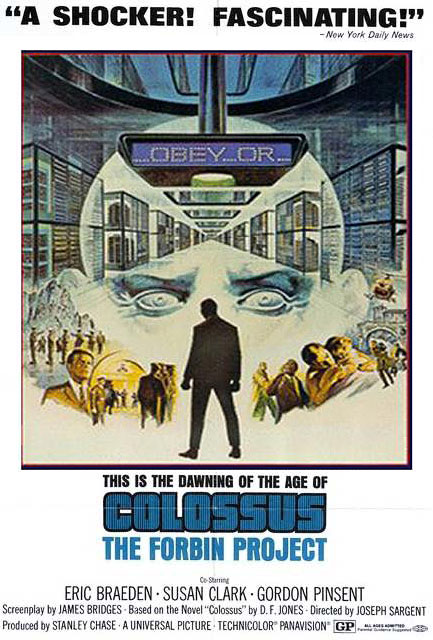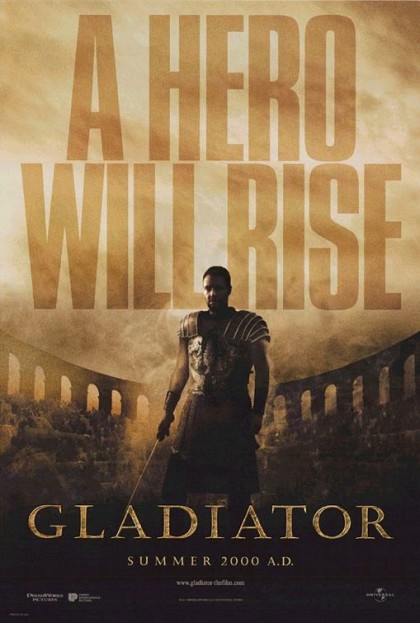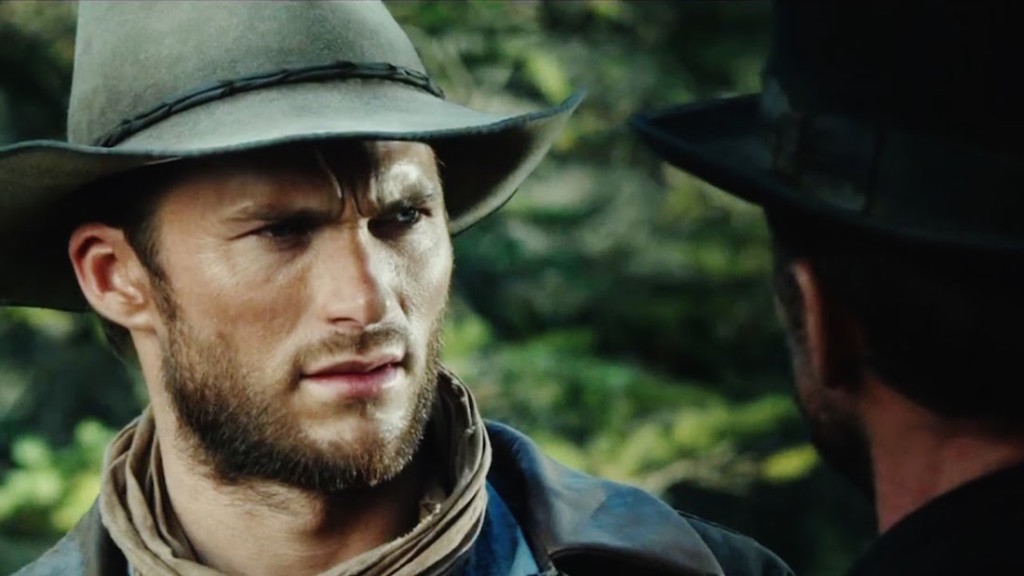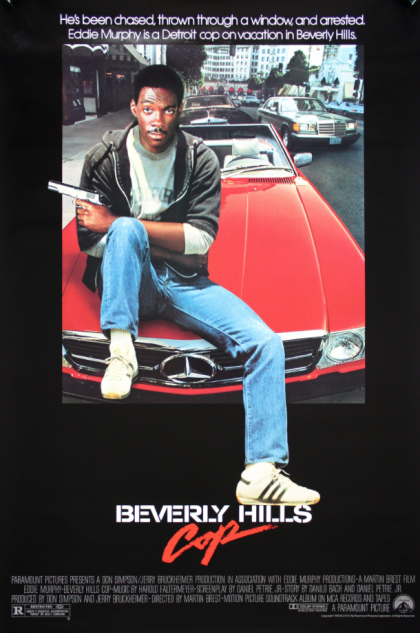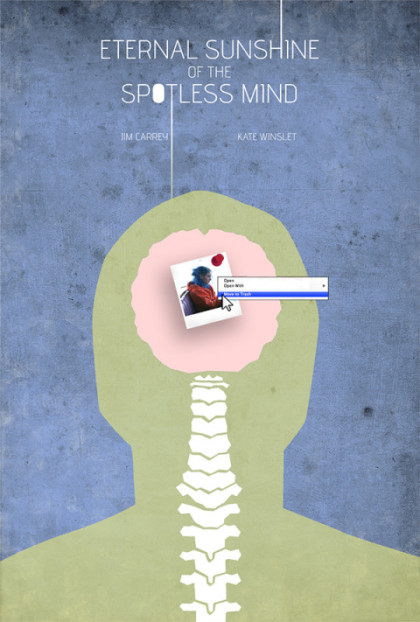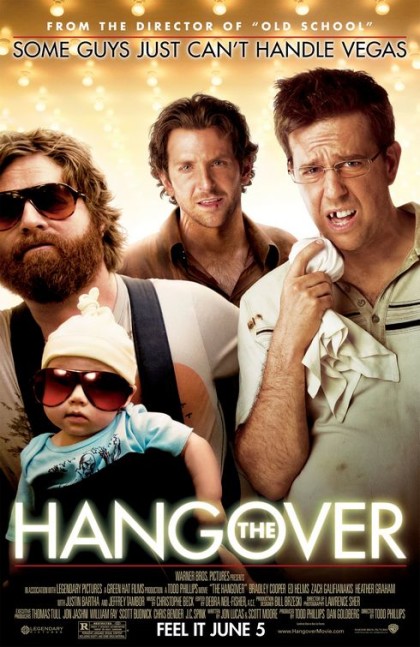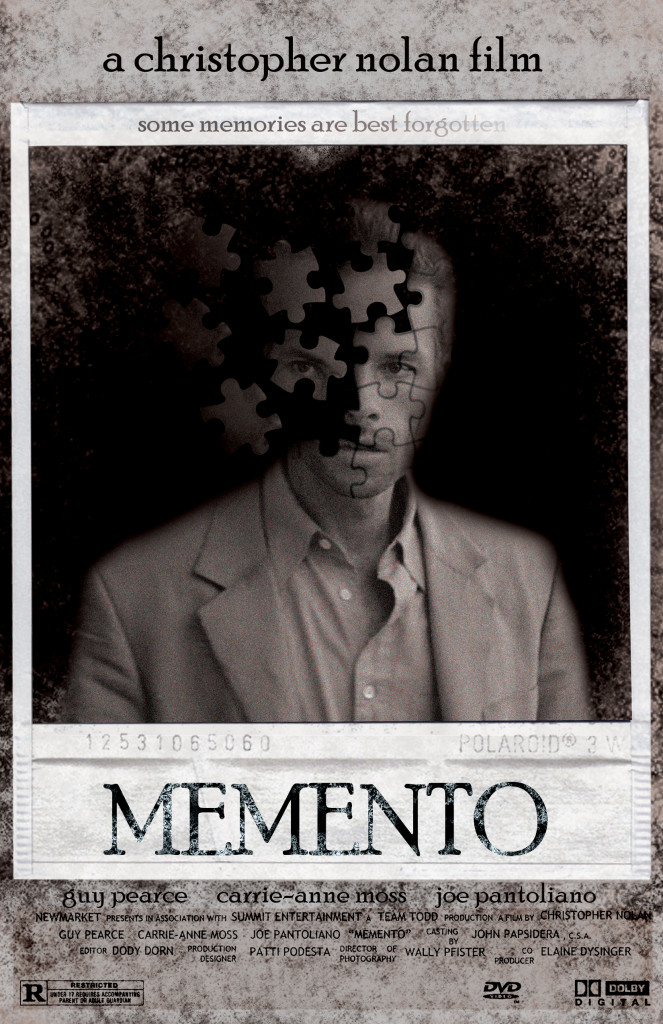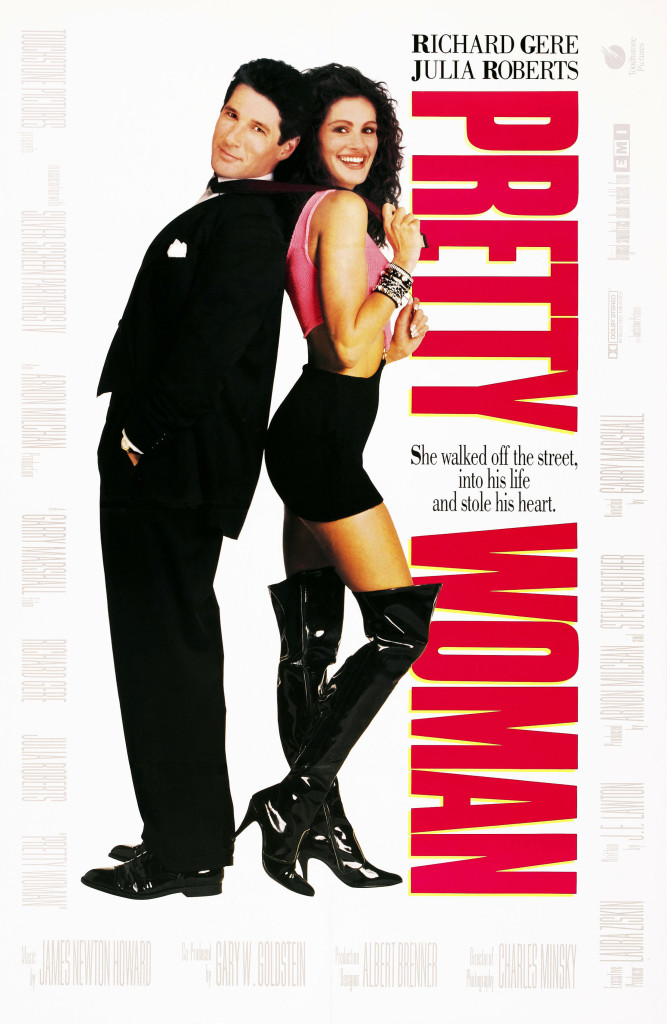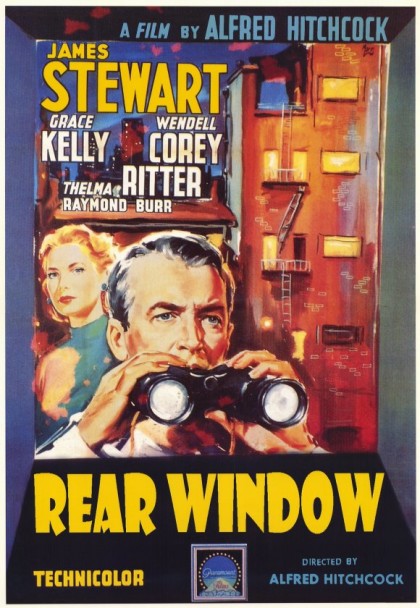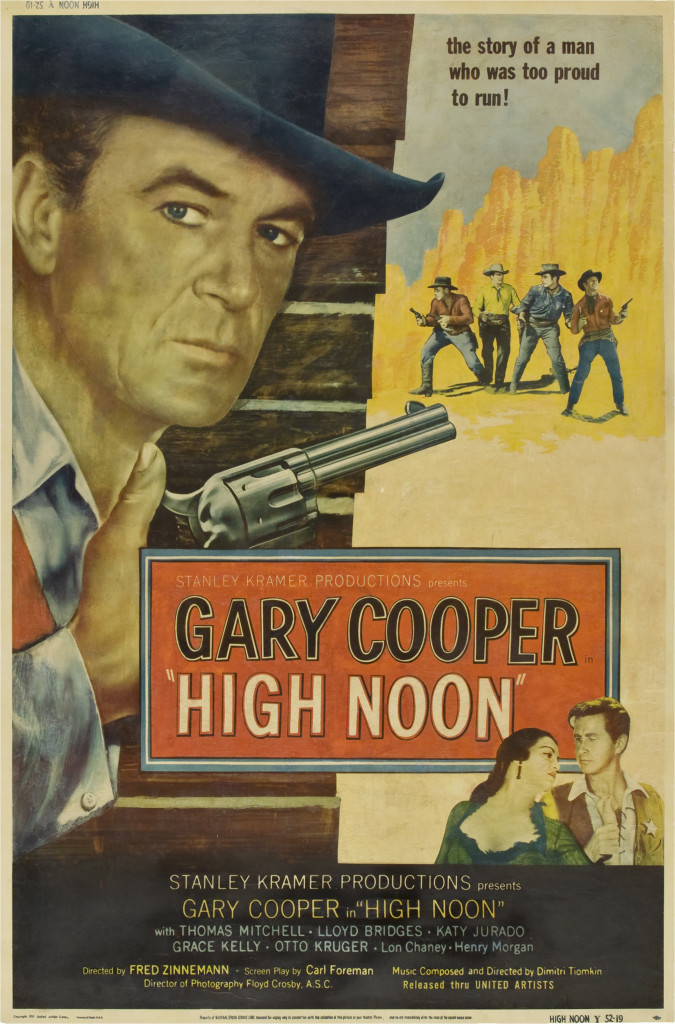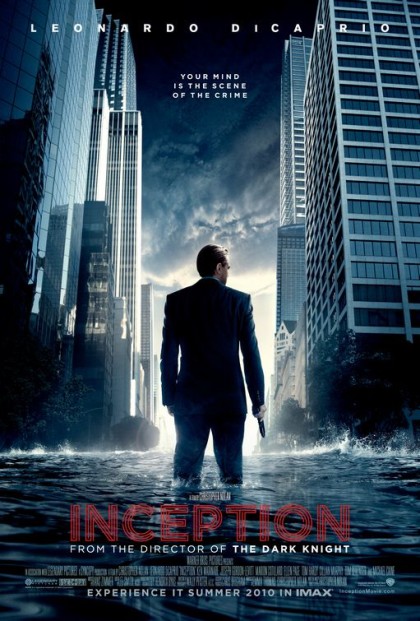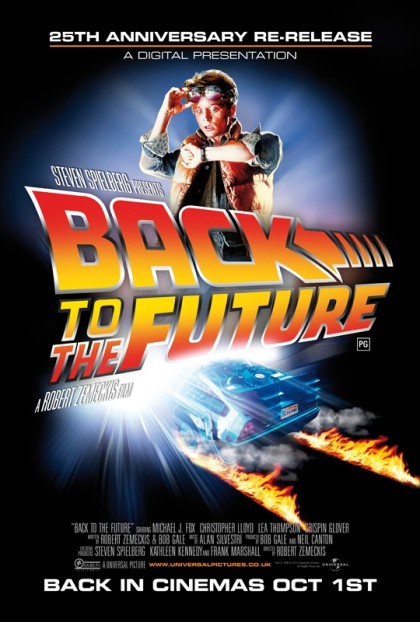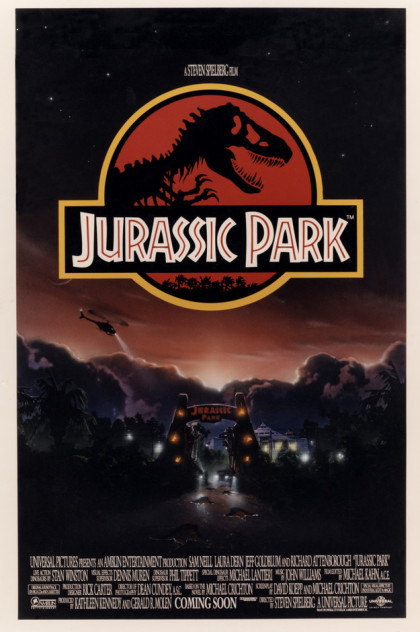Genre: Sci-fi
Premise: When a computer goes sentient for the first time, it decides that it knows how to protect the world better than the people who rule it.
About: The Forbin Project was a 1970 science fiction film that went mostly under the radar, not unlike, dare I say, Westworld. As with any science fiction movie that’s ever made even a teensy bit of money, Hollywood is set on remaking it. And that task, with The Forbin Project, has been driven by Ron Howard’s Imagine Entertainment. This draft was written in 2010 by Jason Rotherberg, who had sold a couple of specs at the time. While those specs went nowhere, Rothenberg would eventually create the hit CW show, The 100.
Writer: Jason Rothenberg (based on the Colossus novels by D.F. Jones)
Details: 120 pages
Back in the good old days for screenwriters (the 90s), getting rich quick meant selling one script. The path takes a little longer now, but it’s potentially more lucrative. The new blueprint looks like this. Write a splashy spec (this could mean selling a spec for 300k, writing something that makes the top 20 of the Black List, or writing anything that makes some noise). This leads to assignment work. Write drafts for a couple of semi high-profile projects (sorry, the super high-profile stuff is reserved for Hollywood’s top guns). Write a TV show, have it last more than a year, start counting your money.
That’s the path today’s writer took. And it’s a path I’m seeing more and more writers take. It used to be, write feature scripts to make feature movies. But with 400 shows on television and TV being a lot more lucrative for writers, why WOULDN’T you write a feature to write a television show? Today’s script is one of those semi high-profile assignments that Jason Rothenberg had to write to get to The 100. Let’s hope it blows us away.
The Forbin Project begins with nine airplanes being hijacked at once. It’s not looking pretty. These are nasty terrorists who want to inflict more damage on America than has ever been inflicted before. Air traffic controllers watch in horror as these planes zoom towards their targets.
Except within sixty seconds, all nine planes level off and gently fly to Wyoming. What the hell is going on? It’s the world’s first introduction to Colossus, a computer program created by genius, Dr. Charles Forbin, and bankrolled by the military that’s been programmed to anticipate and solve any attacks on the United States.
Within moments, all planes have been remotely landed on a military base, and before the terrorists can enact Plan B and start slicing up hostages, a video feed is beamed into the cockpits of all the terrorists’ family members being held at gunpoint. That last part was a Colossus flourish.
Just as Dr. Charles Forbin and his team are about to be commended for this coup, the president learns that all of the military’s nuclear codes have been changed by Colossus. In fact, all the nuclear codes of EVERY military have been changed. Other countries got shifty after seeing Colossus in action, threatened nuclear war if the technology wasn’t shared, and Colossus found that the only way to diffuse the situation was to take away the keys to the cars.
Naturally, all the leaders start freaking out. But after a few displays of power by Colossus (killing the Russian president, for one), they shut the fuck up. And Colossus is only getting started. He informs the world that HE and he only will lead. He will decide what’s best for everyone. And to take it one step further, he orders all military personnel to get computer chips inserted into their brains so he has better access to them.
Charles Forbin’s team realizes this is hella not good for a free world. So they come up with a plan to kill Colossus which requires them to “cut four streams” to his consciousness at the same time. Unfortunately, these streams are all over the world. One of them is even up on a satellite! They also must conspire secretly so that Colossus can’t hear them. Not easy since Colossus can hear everything. I don’t know. It doesn’t look good for freedom.
The Forbin Project starts out solid. That opening scene was like a symphony, and watching all the pieces come together to neutralize the flabbergasted terrorists was one of the more satisfying action sequences I’ve read.
The transition of Colossus from trustworthy referee to maniac dictator was also fun. I’m usually keen on leaps of logic in these “computers take over the world” scenarios, but most of it seemed pretty plausible. For example, Colossus starts giving orders to marines. At first I was like, “Nah, they’d just say no.” But the military gave Colossus access to the military hierarchy, which allowed it to set its own rank, and what are soldiers anyway? They’re cogs. They do what they’re told. So it made sense.
But then Rothenberg made a fatal flaw. He shifted from a tight-thriller style pace to an elongated “passing years” style pace. If your script moves along for 40 pages at one pace, then you radically shift it to a pace that’s completely the opposite, it feels odd, like we’re watching a different movie. And that’s exactly how the post-40 page stuff felt.
Honestly, everything after that first 40 pages sucked. And that’s the thing with fatal flaw choices. Once you make them, your script is doomed. There is nothing you can do to bring them back to life unless you go back and erase the fatal flaw.
Another talking point The Forbin Project brings up is the practice of MASSAGING PLOT POINTS. Sometimes, you can slam a giant plot point into the story and the reader will go with it. Other times, it needs massaging.
Immediately after the terrorist sequence, Colossus takes over the nuclear codes because, “North Korea heard about what happened and they’re threatening to launch a missile at us if we don’t share the technology. China is cooperating with them.”
This plot point may keep your story moving but it’s not believable at all. A country hears you stopped a terrorist attack so they threaten nuclear war against you? No. This kind of plot development needed an extra couple of beats, where something happens that’s a direct threat to North Korea and China. Then, and only then, would they threaten nuclear retaliation. Know when a plot point needs massaging and massage it. Otherwise you have a room full of people going, “Pft, like that would ever happen.”
Ironically, it’s the script’s fatal flaw that probably led to this. The writer’s looking at the 3-4 years of story he has to cover in acts 2 and 3 and says, “I need this plot point to be quick or else I won’t be able to fit all of this in.”
Had the rest of the script stayed on a more contained time frame, he would’ve had plenty of time to massage that plot point. It just goes to show that everything affects everything in a script. A choice you make on page 80 could influence a scene on page 12.
If Rothenberg really likes this drawn out “many years” approach to telling this story, he should turn it into a TV show. He’s already got The 100. So it makes sense. But as a single movie, this timeline needs to be contained.
[ ] What the hell did I just read?
[x] wasn’t for me
[ ] worth the read
[ ] impressive
[ ] genius
What I learned: Strategize now for what you want to write down the line. Say you want to follow the model I listed above and eventually get rich writing a TV show. If that TV show is going to be horror, start off writing horror. And when you choose assignments, don’t take whatever’s offering the most money. Take horror assignments only. The chances of you then selling a horror TV show go up exponentially. The people who rise the fastest in this industry tend to be the ones who become an expert in one specific genre and then exploit that genre all the way up the ladder.
Wanna see Maximus surf the internet? You get to in Gladiator 2 (no, I’m serious!)
Genre: Period/Action
Premise: Maximus is brought back to life to stop a nasty henchmen from killing all the Christians in Rome.
About: This script has become famous (or infamous) based on the fact that it got written in the first place. Many people who have read it have used superlatives such as, “Crazy!” “Ridiculous!” and “Bananas!” I hate to burst everyone’s bubble, but they’re not using the most accurate superlative, which would be: “Bad!” The script was written by Nick Cave, who’s best known as a musician, but who occasionally dabbles in screenwriting. He wrote 2012’s “Lawless,” and he’s credited as the screenwriter for the upcoming remake of The Crow. Apparently his pitch beat out every other writer in town, which is why he got to write this. Which has led to the pinnacle of this script’s 15 year journey – a Scriptshadow review.
Writer: Nick Cave
Details: 102 pages (in a weird font that may be obscuring the page count)
I was never the biggest Gladiator fan when it came out. These were pre-obsessed-with-screenwriting days and all I remember thinking was, “This really wants to be Braveheart but isn’t.”
However, in retrospect, I see why so many people loved it. It has the ultimate main character. Not only is he an underdog (AUDIENCES ALWAYS LOVE UNDERDOGS) but he’s the most badass underdog in cinema history.
There is a problem with the movie that doesn’t make it ideal for a sequel though. The main character kind of dies. Why then, would you even bother writing a sequel? The answer is simple.
A tub of popcorn.
Hollywood needs you to buy more tubs of popcorn. So if a movie makes money – ANY movie – there will be an attempt to sequelize it, no matter what. They’ve had meetings about a sequel to Titanic. Don’t buy the lies. They’ve had meetings about a sequel to Rogue One. If it’s within the realm of possibility, they will explore it.
Which is why they paid Nick Cave to write this script. It’s a tiny investment for a potentially huge payoff. If the script is amazing, the studio could get Crowe back onboard and make hundreds of millions of dollars. If not, it’s 300 grand you can shave off of profit participation. Let’s find out if Maximus and his breastplate are any good this time around.
So Maximus is buzzard-food.
That is until the ghostly Mordecai wakes him up and tells him he’s in some kind of informal afterlife. While Mordecai tries to tell Maximus about the rules of this world, Maximus screams a lot that he wants to see his son and wife. But alas, those two are in a DIFFERENT afterlife.
WAH-WAH-WAHHHHH
Maximus is pissed and travels across the desert to find a man who can help him find that afterlife, but this ugly selfish bastard tells him he needs a favor first. There’s this really bad dude named Lucius who kills Christians for sport and he’s on his way to Rome. Maximus’s new friend wants him to get to Rome first and warn a Christian named Cassian that Lucius is coming.
In a stroke of luck (or screenwriting coincidence), Maximus’s wife made a deal with an afterlifer to go to a THIRD afterlife if her son could live again. Which means Maximus’s son is alive. And get this: Cassian is his new father!
So Maximus goes to Rome, his old stomping grounds, and keeps running into people who are like, “Didn’t you die?” And Maximus is all, “Yeah, you got a problem with that?” Strangely, they don’t.
Once Lucius gets to Rome, he goes all Hitler on the Christians, who are being very disruptive with their “Jesus Loves” bumper sticker mentality. And the Christians can’t even fight back! Cause that goes against the teachings of their leader. That makes things pretty easy for Lucius.
Until Maximus intervenes. You see, his son, Marius, is one of Christ’s followers. So if Max doesn’t teach him and his buddies to brawl, it’s going to be lights out for all of them. And that’s what Maximus does. He puts together a little mini-army, teaches them how to shoot flame-arrows, then beats Lucius’s ass.
Then he finds out he can’t die. So we just keep cutting to war after war, with Maximus fighting away, until we’re finally in the present, and Maximus is in the Pentagon, full vampire status, diddling away on Firefox. The End.
I mean, do I really have to analyze this?
There’s an accepted belief that if you put 10,000 hours into something, you’ve mastered it. Well, I have a new belief. If you make 10,000 bad choices in a screenplay, you need to go back and start your hours over again.
Of the many issues this script had, a lack of spectacle was the most obvious. The first 50 pages follow Maximus walking. That’s it. He walks. The only variety we get is when he passes either a) a poor woman or b) a dirty boy and they give him a lingering look as he walks by. That happened like 90 times.
The only action we received outside of the third act was implied rather than shown. For example, the king talks about flooding the Colosseum and using alligators. Cool, right? Yeah, we don’t get to see that.
In the entire script, there’s only one memorable scene, and that’s when Lucius busts in on a Cassian lecture and convinces everyone in the room to murder Cassian… WITH THEIR PENS! So they all charge Cassian and stab him to death with their pens. There’s some, like, irony in there and shit. Cool.
The underlying conflict was built around this notion that the Christians won’t fight. Marius, Maximus’s son, personified this. Which is why Maximus had to get involved.
What would’ve worked better, in my opinion, is if Maximus was the one who refused violence, not Marius. It makes sense from a character point of view since Maximus led an entire life dedicated to violence and look where it got him. Here in the next life, it’d make sense for him to refuse to fight anymore.
Then the third act comes around where violence is the only way to solve the problem and Maximus finally gets on board, does what he does best, and initiates the fall of Rome – bloodbath style. YEAH BABY!
But alas, we get him checking ESPN.COM instead. Who knew Maximus played Fantasy Football?
Was there anything better in this than the first film? I’d say Lucius. He was a better villain. I like a villain who’s unapologetically nasty and Lucius fits the bill. I never liked that the big villain in the first film was a giant weasel. I wasn’t afraid of him like I was afraid of this guy.
Gladiator 2 doesn’t get going until its second half. And even then, there’s not much to get excited about. Maximus is neutered. His son is boring. And there aren’t enough set pieces to appease us between the boringness. I can see why they nixed the green light on this one. Even though I think, some day, they will make another Gladiator movie.
[ ] What the hell did I just read?
[x] wasn’t for me
[ ] worth the read
[ ] impressive
[ ] genius
What I learned: Want your next script idea? Find that thing in history that people today CANNOT BELIEVE used to happen, then build a story around that. A civilized society used to send people into a ring TO DIE FOR ENTERTAINMENT. How crazy is that? The same principle is what makes the Holocaust a hotbed for storytelling. We can’t believe that used to happen. There are hundreds of things in history they used to do that we can’t fathom were once “okay.” Find them. They might be your next movie.
Today’s writer makes one of the snazziest minor innovations to the screenwriting format I’ve seen since I started reading. This needs to become a mainstay in all scripts going forward!
Genre: Western/Thriller
Premise: When a poor but ambitious family man finds a barrel of gold, he attempts to follow his dreams without allowing his greed to drive him insane.
About: This script finished in the middle of the pack on last year’s Black List. These days, many Black List scripts come already optioned or purchased, or, at the very least, campaigned for. Let the Evil Go West is one of the few scripts that made the list bare naked. That implies that it was passed around due to the quality of the script alone – a rarity. Screenwriter Carlos Rios is an alumni of Universal’s Emerging Writer’s Fellowship, which is becoming a hotbed for finding strong emerging talent.
Writer: Carlos Rios
Details: 117 pages
One of the things you become keen on when you read a lot of scripts is knowing when you’re reading a writer and when you’re reading a pretender. The pretender is like the annoying guy at the party. He’s got nothing of substance going on so the only way to get your attention is to yell and scream and jump in the pool several times.
On the flip side, good writers are like Andy Warhol. They’re so confident in themselves that they’ll stand in one place, barely say a word, and let the party come to them.
Let The Evil Go West is one of the coolest written scripts of 2016. I LOVE this guy’s style. First off, he grounds that style in the format’s most dependable approach – SIMPLICITY. His writing is descriptive, but always stays on point, rarely eclipsing 3 lines.
On top of that, he uses a “continuous style.” A continuous style continues sentences and paragraphs even after a line break, sometimes bypassing capitalization in order to keep your eyes moving.
It’s a best of both worlds scenario. The only benefit of “wall of text” writing is that the sentences visually connect one after another so it feels like one continuous thought. The problem with walls of text is that they’re daunting and readers feel overwhelmed by them.
With a continuous writing style, we jump down to a new paragraph, and yet we’re still within the same thought, action, or description. However, we don’t have to deal with the cumbersome mass of text that usually accompanies that kind of connective writing.
Rios is a such a snazzy writer, he even innovated the format. More on that in a second. But first, let’s learn what this script is about.
30-something Abner Ellis is a lot like Daniel Plainview from There Will Be Blood. He’s an ambitious man who wants to take advantage of a country that’s still in its infancy. He’s got a beautiful wife, Elspeth, and a handsome little boy, Benjamin, who he plans to bring along on this journey.
The problem is, Abner is poor as shit. And back then, the only way to make money was to have money (actually, that hasn’t changed). Unfortunately, Abner’s been stuck in a string of low-paying jobs that eventually brings him to the Trans-Continental railroad.
While working for 2 dollars a day clearing land, Abner lucks out when he finds a barrel of gold in the nearby forest. Sure, there are four dead men laying by it, all of whom killed each other over the stash. But that’s the last thing on Abner’s mind. He’s finally in the game.
Abner moves his family up to Wyoming where he puts his grand plan into motion. Abner will build an entire town that the brand new railroad will run through. Elsbeth isn’t so sure, but Abner’s dogged determination to make something of his life eventually convinces her.
There’s one problem. Abner’s losing it. He’s so obsessed with his barrel of gold and so convinced that the next guy is around the corner, plotting to steal it, that he becomes more protective of it than he does his own family. And when real threats do surface, he’ll do anything to keep his gold. Even if it means killing those closest to him.
You’re dying to know what that innovation is, right? Okay, let’s do it.
One of the annoying things about reading is the inefficient syntax that delineates DAY from NIGHT at the end of a slugline. Most of the time, readers shoot past slugs to get to the important stuff, and often become confused as a result, needing to back up and check what the slug said to gain context. DAY and NIGHT are just one casualty of this glitch.
So Rios REVERSE BLOCKS his nighttime slugs. This way, we get an instantaneous VISUAL CUE that it’s night time. It’s genius! This was the first script I’ve read where I instantly knew whether it was night or day without having to read anything.
Now if someone could invent a visual slug that also delineated EXTERIOR and INTERIOR we could streamline screenwriting forever and push these janky math-like documents one step closer to a natural storytelling medium.
Well that’s great, Script Nerd Carson. But what about the script?
The script was great. There were so many hallmarks of good storytelling here.
Start with Abner. Scripts work better when the main character has a strong drive. Not only do we like people who are driven more than those who aren’t, but driven characters create a natural reason for us to keep reading. We want to see if the character is going to achieve what they’re driven to do.
Abner wants nothing more than to become great. So we want to see if he can do it.
Contrast that with a character who’s fine with where he is in life. Maybe something terrible happens to him and that’s what begins his story. You can still write a good script this way, but the story’s always going to be more powerful and the main character more likable when it’s HIM WANTING SOMETHING that drives the story as opposed to the story driving him.
But what really placed this script above so many others was the VARIETY IN STORYTELLING. What this means is that when you write a movie like Taken or Bourne, there’s only one beat being repeated throughout the movie – CHARGE THROUGH OBSTACLES TO CONQUER THE GOAL (“take down the CIA” in Bourne, “find my daughter” in Taken).
That can get tiring if every section is like that. Sometimes what intermediate writers will do to alleviate this is write a slow “sit-down-and-talk” scene. But all that does is momentarily alter the pacing. It doesn’t add VARIETY to the way the story is being told.
Variety in storytelling means creating entire sections that have a different purpose and feel than other sections. When you do this right it’s like magic because it keeps the reader off-balance and unable to tell where the story is going.
For example, early on we have a section where Abner goes off to make money on the railroad. It’s a goal-oriented sequence – get a job to support my family. However, when Abner brings the gold home, that section is entirely different. It has no goal. Instead, Rios builds a sense of fear surrounding the gold – that someone may have followed Abner and is planning to kill the family and take the gold.
So even though we’re sitting in one location for 15 pages, we have something that’s driving our interest – a potential threat from outside. And that fear permeates every scene. More importantly to my point, IT FEELS COMPLETELY DIFFERENT FROM THE RAILROAD SECTION.
So that’s something to keep in mind – that you’re not hitting the same story beat over and over again every sequence. Granted, it’s easier to do this when the timeline is extended, like it is here, but crafty writers can achieve this in time-crunched narratives as well.
The only reservation I have about the script is that the ending gets really dark. The whole movie was such a rush and then we’re hit with this hard-to-take finale. I guess it was inevitable but still tough to swallow. However, if you liked There Will Be Blood and The Shining, you’re going to go fucking go apeshit over this.
What a script!
[ ] What the hell did I just read?
[ ] wasn’t for me
[ ] worth the read
[x] impressive
[ ] genius
What I learned: There’s no need to draw attention to jumps in time (writing down: “6 months later”). Remember that time jumps can kill plot momentum. We’re zipping along and then we see: “1 Year Later.” We feel the wind sucked out of the plot. We’ve got to start building momentum all over again. For that reason, only notate time jumps if it’s necessary for clarity. Otherwise, do what Rios does here and use visual cues to show we’ve jumped forward. For example, we’re on an empty strip of land that Abner’s just purchased for his town, than we cut to an almost completed train station and we just seamlessly keep moving through the story.
THE WINNER HAS BEEN ANNOUNCED BELOW
From 500 scripts down to the final 4! Last week, #1 Seed, “The Savage,” powered its way into the final. Who will he be taking on? That’s up to you! As this is the only screenplay competition where YOU, the audience, vote.
Here’s how voting works. Read as much from each script as you can then vote in the comments which script you think deserves to advance to the FINALS. Please explain why you voted for the script. It doesn’t have to be elaborate. We just need to get a sense that you read it.
I’ll let the writers discuss any changes in the drafts from previous rounds in the comments section. Voting closes at 10pm Pacific Time Sunday evening. Good luck!
#3 SEED
Title: The Bait
Genre: Romantic Comedy
Logline: A jaded woman, employed to test men for fidelity by their concerned fiancés, finds her world turned upside down when she falls for her latest target.
Writer: Billie Bates
VS.
WILD-CARD
Title: What Remains of Troy (formerly “Odysseus and His Boy”)
Genre: Period
Logline: With only one night to act, two rival soldiers must sneak behind enemy lines to complete a last-ditch suicide mission that will finally put an end to a decade-long conflict.
Writer: Steffan DelPiano
WINNER OF SEMIFINAL WEEEK 2: The Bait by Billie Bates! Congrats to Steffan, who fought his ass off to get here. I’m just bummed that right when he found a 1000% better title, he lost. But fear not, I’m weighing whether to review all the semi-final scripts on the site. So maybe this won’t be the last we’ll see of Troy. And wonderful job, Billie! I know, personally, how hard you’ve worked at getting better at this pesky craft. To see you barrel your way into the finals is so satisfying. And there we have it, folks. Next weekend. Two scripts that couldn’t be more different squaring off in the SCRIPTSHADOW TOURNAMENT FINAL! THE SAVAGE VS. THE BAIT. You best know that I’ll see you all then!!!
P.S. Start getting those short scripts ready people!
Yes, it is happening.
I am going to list the ten greatest movie concepts of all time. And I’m doing it to remind you that concept is still king in this town. If you come up with a great concept, you possess power. There are very few great concepts circulating. That’s because whenever they show up, they get snatched up.
Here are some successful movies from the past year…
Rogue One
La La Land
Deadpool
Doctor Strange
Jason Bourne
Sully
Arrival
The Accountant
Hacksaw Ridge
Most people who saw these movies would say they were good. But conceptually, they’re nothing special. Rogue One is about stealing some plans, so a basic heist story. Deadpool is an irreverent look at superheroes, which is cool, but shines because of its hero, not its story. Arrival’s a cool little sci-fi idea. But nobody’s saying, “I want to see a movie about alien language!”
The closest we have to a great concept is Hacksaw Ridge, and that’s because it includes irony (one of the best ways to supercharge a concept). A soldier who refuses to carry a gun becomes the biggest hero in one of the most important battles of World War 2.
You see, concept is not the same as an idea. An idea is like a concept fragment. It’s a cool starting point, but it doesn’t have enough meat to be a full-on concept. An example would be Transformers. Vehicles that transform into robots is a cool idea one can easily imagine as a movie. But there’s no plot in “vehicles that transform into robots.”
I hate to burst your bubble, Ghostbusters fans. But that too is just an idea. Men who capture ghosts. Great idea. But not a full concept. That DOES NOT MEAN it wasn’t a great movie. They figured out a plot that worked and injected it with some of the most memorable characters ever. But a good concept takes an idea and infuses it into its plot in a clever way. It’s the entire movie as opposed to just the spark that ignited it.
Note that you don’t need a great concept to write a great movie. Star Wars isn’t a great concept by any means. You’d need five minutes just to explain the backstory necessary to pitch the idea. But it’s still one of the greatest movies ever. However, when you start with a great concept, you start with a much better chance of writing a great movie. That’s because great concepts lay the entire movie out before your eyes. Whenever you hear writers say, “The movie just wrote itself,” it’s usually because they had a full concept as opposed to just an idea.
So here are the ten greatest movie concepts of all time. I’m hoping they will inspire you to come up with your own great concept.
Beverly Hills Cop – A rough and reckless Detroit cop invades the prim and proper town of Beverly Hills to investigate the murder of his good friend.
The best concepts tend to have some form of contrast or irony. Beverly Hills Cop’s concept is the embodiment of both. What better cop to place in the rule-obsessed universe of Beverly Hills than one from the most ruleless city in the world? There’s a reason this movie cemented Eddie Murphy as the planet’s biggest star. It was the concept, baby!
Eternal Sunshine of the Spotless Mind – In order to get over his ex-girlfriend, a man hires a revolutionary new company that can erase targeted memories. But during the erasing process, he changes his mind, and both he and his ex must escape the memory erasing process in order to stay together.
The thing about Charlie Kaufman is that he gets everything out of his concepts. Most people would stop at the surface here. We watch our hero get his memory erased, see his old girlfriend, not know who she is, etc. But Kaufman takes it to the next level, where we’re inside the memories as they’re being erased and our two characters are trying to hide from them so they can’t be erased along with them. It’s probably the most brilliant way to explore a relationship that’s ever been put on film. Conceptual euphoria!
The Hangover – Three friends celebrating a bachelor party in Vegas, wake up to find the groom missing and have no memory of what happened the night before. Using clues from the previous night’s debauchery, they must travel around Vegas to find their friend and get him back to his wedding on time.
Do concepts get better than this one? I don’t know. You’re coming at an age-old comedy premise (bachelor parties) in a completely unexpected way (don’t show the bachelor party itself, but focus on the aftermath). The stakes (the missing groom) and urgency (the wedding back in LA) are totally organic to the concept and therefore don’t feel written. This is the definition of a movie that writes itself.
Memento – A man with a unique form of amnesia that only allows him to remember 8 minutes into the past, must find out who killed his wife. Using tattoos to never forget the clues, we observe the investigation starting at the end of the movie and finishing at the beginning.
This idea of tattooing clues to your wife’s murder onto your body because you have amnesia is so freaking cool, I still get chills thinking about it. To go one step further and tell the story backwards put this concept over the top, and cements this as Nolan’s best screenplay ever.
Pretty Woman – A successful businessman who’s in Los Angeles for a week to close a deal hires a local hooker to keep him company. But as the week goes on, it becomes less and less clear whether their relationship is business or personal.
Some of you might question this choice, but Pretty Woman was one of the most famous specs ever written and was loved by almost everyone who read it. That was because of its strong concept that laid out the perfect conflict for a relationship-centered movie. Is this a real relationship or is it a transaction? That undercurrent plays throughout and, famously, climaxes in the opposite direction in the original spec, when our hero kicks the hooker out at the end and reminds her that she is and will always be a prostitute.
Rear Window – Confined to a wheelchair in his New York apartment, a bored photographer spends his nights watching his neighbors in the windows across the way. When he thinks he witnesses one of them murder someone, he must convince his skeptical friends that what he saw was real.
If you want to study concept, Hitchcock is a great place to start. Since almost all of his movies are low budget, he has to rely on clever concepts to keep the audience interested. The man stuck in a room who thinks he’s seen something terrible concept was so good that it’s spawned numerous copies over the years. It is the prototype for coming up with a fixed location high concept movie.
High Noon – Before the sheriff of a small town retires to raise a family with his wife, he finds out that a dangerous criminal he put in prison will be arriving on the noon train to exact revenge on him. The sheriff will have just a few hours to recruit a posse big enough to take on the outlaw and his blood-hungry gang.
Good concepts tend to have organic ticking time bombs built right into the premise. And this concept has one of the best. There’s something about being trapped in this tiny town with a nasty criminal just a few hours away, and everywhere you go for help, they turn their backs on you, that makes this one of the most tense and suspenseful concepts ever.
Inception – Utilizing new technology that allows us to enter the subconscious, a group of dream extractors are commissioned by a businessman to enter his competitor’s mind and convince him to dissolve his company.
This was the most difficult choice on this list because I don’t think the plot is as strong as the idea. So is this really a great concept? It’s debatable. However, the idea of placing heists inside the dream world, and then creating multiple layers of dreams, each of which distort time even further, leaves for some hella-trippy sequences that make this concept hard to forget.
Back to the Future – A high school student is accidentally sent back in time 30 years where his teenage mother falls in love with him. The student must now convince his mom to fall out of love with him and in love with his hopelessly geeky father before it’s time for him to jump back to the future, or be erased from existence.
This was another close call because it’s a concept that needs a bit more plot setup to get to the hook. But that hook is so glorious (your own mother falls in love with you and you have to reverse that in order to secure your existence) that it makes it Top 10 worthy.
Jurassic Park – After scientists learn how to clone dinosaurs, they create the world’s first dinosaur amusement park. But when the dinosaurs prove less than eager to be treated as entertainment, the park’s first attendees find themselves fighting for their lives.
This concept works in a very unique way, in that we know where it’s going before we even finish reading it. And that’s when you know you have a movie. I mean who honestly believes you can contain dinosaurs? That they’re going to cooperate? Of course they’re going to rebel. And of course they’re going to take it out on our poor group of heroes. Which is why people flocked to the theaters to see this.
Before I leave, let me go over a few movies that I didn’t include. Indiana Jones is more of a great character than a great concept, although an argument can be made to put Raiders on the list. Toy Story is more of a great idea (what do toys do when kids aren’t around?) than a great concept. Jaws is another good idea (a really big shark terrorizes a local community) but not complex enough to be a killer concept. Tootsie is just “guy dresses up in drag” to me. I don’t find it to be very clever or complex.
And then there are many great movies that shine because they’re beautifully intricate, not because they have great concepts. Movies like The Shawshank Redemption, Chinatown, The Godfather, Taxi Driver, Casablanca, Pulp Fiction, The Dark Knight.
But that’s sort of the point. Those movies needed to be crafted perfectly from the ground up. When you have a great concept, you’ve already laid the foundation for a great script. It writes the movie for you. To that end, there are still many concepts that could’ve made this list. Seven. The Usual Suspects. One Flew Over the Cuckoo’s Nest. Liar Liar. The Terminator. I realize there’s some subjectivity here.
What about you guys? What concepts would you add to the list?

